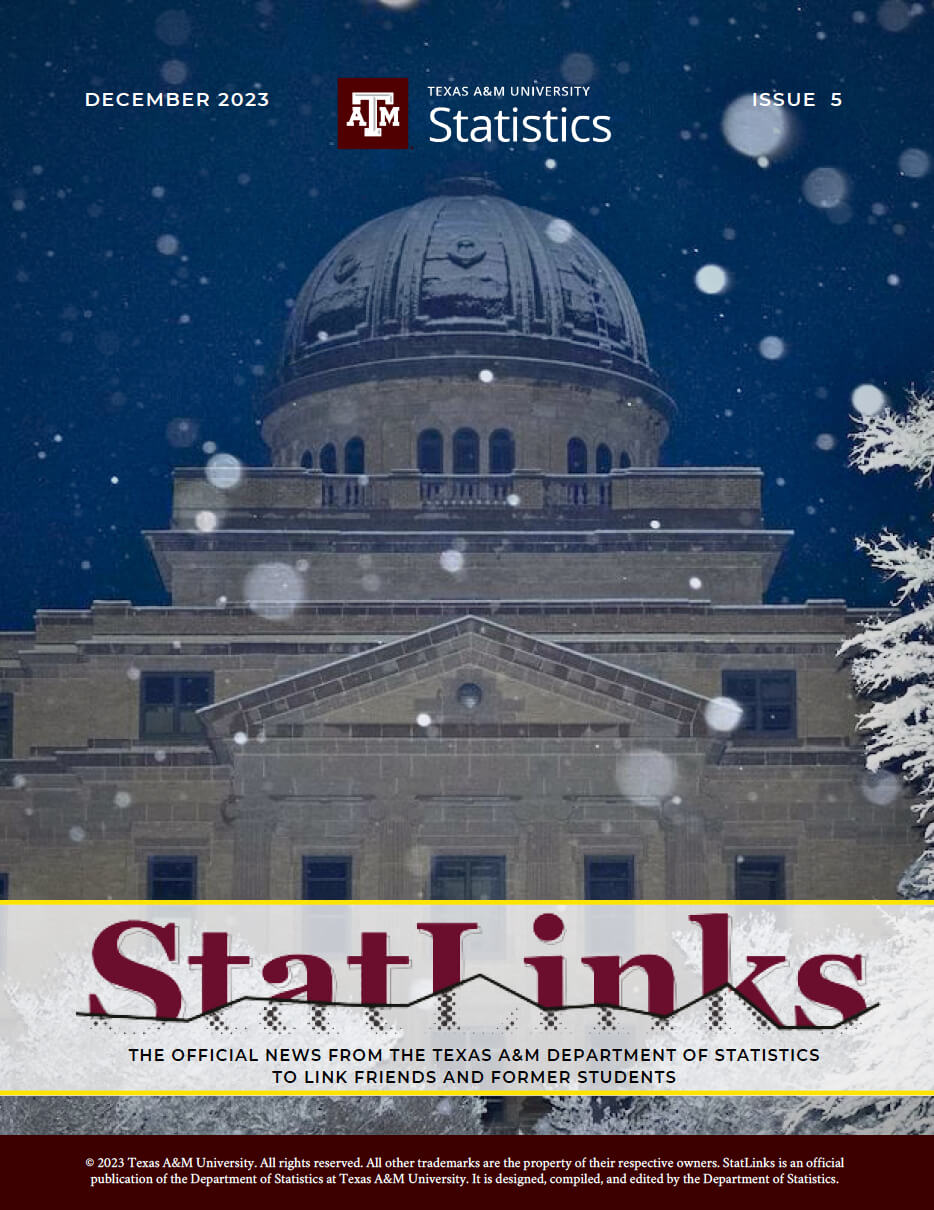Three new faculty members will join the Statistics Department this fall beginning on September 1, 2018. Please join us in welcoming Tanya Garcia, Yang Ni and David Jones to the Department of Statistics Faculty.
TANYA GARCIA

Tanya Garcia earned her PhD from the Department of Statistics at Texas A&M University in 2011, and was an assistant professor in the Department of Epidemiology and Biostatistics at Texas A&M School of Public Health since 2013. Her research is motivated by innovating practical and theoretically sound methods that address challenges in biomedical fields.
Tanya’s work involves national and international collaborations with neuroscientists and biologists. Her research focuses on extracting maximal information from large, highly correlated data structures and has led to scientific discoveries in neurodegenerative diseases and the gut microbiome. Her research has attracted over $900,000 in competitive funding as Principal Investigator including grants from the NIH National Institute for Neurological Disorders and Stroke (NINDS) and Huntington’s Disease Society of America. She has published in top statistics journals including Journal of the American Statistical Association, Annals of Applied Statistics, and Bioinformatics.
She has earned competitive awards including the 2017-2018 NINDS Mentoring Institute for Neuroscience Diversity Scholars Fellowship; a fully-funded, visiting scholar invitation to the University of Sydney in 2012; and the 2011 American Statistical Association Gertrude M. Cox Award.
Tanya is excited to join her alma mater as a faculty member and is looking forward to advising the many talented and energetic students.
YANG NI

Yang Ni received a PhD in Statistics from Rice University in 2015, supervised by Francesco Stingo and Veerabhadran Baladandayuthapani. He joined the University of Texas at Austin as a postdoctoral fellow working with Peter Müller in 2016. He received an honorable mention for the Leonard J. Savage Award for outstanding dissertation in Bayesian Applied Methodology from the International Society for Bayesian Analysis (ISBA) in 2016 and several Distinguished Student Paper Awards including the Laplace Award of the Section on Bayesian Statistical Science (SBSS) of the American Statistical Association (ASA) in 2014.
Yang’s research interests lie in the development of novel Bayesian methods that find good motivations in biomedical sciences. Methodologically, he works in the areas of graphical models, Bayesian nonparametrics, big data computation, random networks, variable selection, clustering, feature allocation and classification. In terms of scientific areas, he is primarily interested in cancer genomics, genetic networks, data integration, brain connectomics, clinical trial design, tumor heterogeneity, precision medicine, biomarker detection and electronic health records.
Yang Ni is a member of the American Statistical Association, the International Society for Bayesian Analysis, the International Indian Statistical Association and International Chinese Statistical Association.
DAVID E. JONES

David Jones received a PhD in Statistics in 2016 from Harvard University under the guidance of Xiao-Li Meng and is currently a postdoctoral fellow at Duke University and SAMSI. Prior to his PhD, David earned an MMath degree from the University of Nottingham and worked for the UK Government Statistical Service. He is a recipient of the 2016 ASA Section on Bayesian Statistical Science student paper award and at Harvard he received the 2016 Arthur P. Dempster graduate student award for significant contributions to foundational research in statistics.
David’s research focuses on Bayesian methods, machine learning, and statistical information. His main application area is astronomy and he collaborates extensively with astronomers on a variety of scientific problems including exoplanet detection, image analysis, and star classification. The astronomical datasets he encounters are often high dimensional, combine multiple sources and types of information, and pose novel statistical and computational challenges. On the foundational side, David is especially interested in developing statistical information measures for decision problems and quantifying prior information. Whenever possible, he seeks to combine his theoretical and methodological work to better tackle modern scientific challenges.
David Jones is a member of the American Statistical Association, the International Society for Bayesian Analysis, the Institute of Mathematical Statistics, and the American Astronomical Society.

